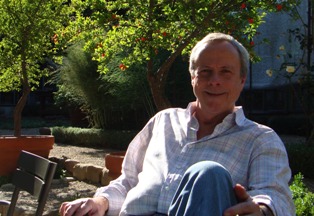 The problem is not information overload, by David Allen
The problem is not information overload, by David Allen
E-mail overload has gotten a lot of press lately – the quantity, the distraction it creates, and our inability to do much about it. There was even a recent debate in a global newspaper between readers voting for keeping e-mail at zero vs. those who use the digital in-basket as a giant library keeping useful information at hand with no concern for the volume. The issue is tied closely with the popular concern about our always-on culture – that we seem to never unhook from the incessant demands of being in touch, put upon us by our clients, our bosses and ourselves.
What’s the problem? There is one, but not the one that’s been popularized. “Information overload” has been the commonly identified culprit, coupled with universal access. That gives the picture of a mounting pile of stuff under which we are constantly and increasingly buried. And if incessant information bombardment is what we are trying to deal with, then help shows up as attempts to filter, sort and organize it faster and faster so we can feel in control of it.
But information overload isn’t the problem. If it was, you’d walk into a library and die. The first time you connected to the Web, you’d blow up, and merely browsing a newspaper would make you a nervous wreck. Actually, a plethora of information is relaxing. One reason a stroll in the woods can be so calming is because of the quantity and variety of visual and auditory input. In an environment of too little information, we get really uncomfortable. Sensory deprivation is unsettling.
And speaking of “always on,” what’s new and problematic about that? Someone estimated that we have fifty thousand thoughts a day. What are three hundred e-mails, compared to the assault of our own self-talk machine-gun brain?
So, why isn’t lots of e-mail experienced as a soothing event, like a walk in nature? Why hasn’t it been accepted as part of our ordinary reality, like thinking all the time, as we do? One simple reason: each one of those e-mails might mean something. The operant word in this problem is “might.” If the meaning of an e-mail were already clear, we would still have a lot to deal with, but it would be much easier. E-mail is not just news – it’s potentially relevant news. It’s not just communication – it’s communication that I might possibly need or want, about which I might need or want to do something. It is potentially important, potentially relevant. And it’s the necessity to determine that relevance that creates the sense of overwhelm.
When we walk through the woods we’re bombarded with information. But only so much has latent importance. What we notice tends to be either of a non-essential and soothing variety, or something very discrete that we’re clearly attuned to. Few people avoid the woods because they feel overwhelmed with the information. Sure, there can be surprises. But when the woods were our life, processing our stuff was easier. Snake rattles, berries to eat, animal tracks, thunder, and poison oak constituted the extent of meaningful input on any workaday Thursday. And when we came back out of the woods, we could get closure on all of that with little additional effort. Psychic RAM probably stayed pretty clear. We had the luxury of communing with ourselves and the subtler signs and signals of our universe, from a clearer space.
Now we’re overloaded – not with information, but with meaning to be mined. So the solution is not about slicing and dicing and reorganizing data – it’s about how quickly and discretely we can decide its specific meaning to us. Is it actionable? If not, is it trash, is it to be stored for later action, or is it reference? If it is actionable, what’s the next action? And what outcome, if any, should I now be committed to? And how does all of that fit within the total inventory of those things that I have collected to date, and which are still potentially meaningful?
The issues about e-mail are not whether I should keep them in my in-basket or file them. That’s just rearranging incomplete piles of unclear stuff. It’s what does each of them mean to me? Do I still need to read it and respond? And by when, exactly, against all the others I still need to deal with? Or just file it as reference? Or dump it? As common-sense as those distinctions might be, they implicitly require us to know what we’re doing and where we’re going. And that’s as easy as, well, knowing who we are and our purpose in the universe (or some derivative version of those eternal questions). Too many things in our in-baskets mean too many things that mean something about which we need to decide the meaning.
The e-mail beast is out of the barn, and it’s going to be nearly impossible to shove it back in. The natural selection of information our minds would do in the woods kept the decisions about meaningfulness to manageable levels, but e-mail invades through to a more intimate room in our psyche. Every one of them might contain a rattle, a berry, a deer track, or thunder.
The good news about the e-mail phenomenon, aside from all the marvels of virtual communication and connectivity with a global community, is that it’s forcing the average professional to grapple with the essential challenge of knowledge work: defining what that work is. That answer is elusive, and morphs frequently. And most of us weren’t taught how to get fast and comfortable with clarifying meaning and priority triage. It can be learned and practiced, as we have discovered in synthesizing the best practices of work flow. And it takes time and energy that many people still don’t acknowledge and accept into their lifestyle logistics. But we have to mature the conversation about e-mail from simple volume-of-stuff thinking, which views the problem as quantifiable, to the more sophisticated issue about how to learn to make rapid front-end decisions about what bright baubles NOT to follow, though they’re in our face.
An old maxim: if you don’t know where you’re going, any road will do. What they should have added is “…and everything coming at you will seem unclear, overwhelming, and a pain in the ass.”
This article originally appeared in a 2006 edition David Allen’s newsletter, Productive Living (formerly known as Productivity Principles.) Click here to subscribe–it’s free. Unsubscribe at any time.


“The e-mail beast is out of the barn, and it’s going to be nearly impossible to shove it back in.”
We might need to question this common assumption. I find that my kids don’t use e-mail very much at all. Partially because they’re not in information-based jobs, but also because they’re developing different ways of interacting with their networks.
So I’m wondering if maybe e-mail WILL die someday.
I once heard Paul Dourish share an interesting and relevant quote during the Q&A of a CSCW 2006 conference panel on email overload:
“One of the diseases of this age is the multiplicity of books; they doth so overcharge the world that it is not able to digest the abundance of idle matter that is every day hatched and brought forth into the world.”
— Barnaby Rich (1580-1617), writing in 1613 (!); quoted by de Solla Price in his 1963 book “Little Science, Big Science.”
This is precisely the approach we’ve taken to help people see what matters most in their Inboxes. http://www.Kwaga.com launched trials in October 2009 and is working to release the beginnings of a full product by April 2010. Rather than looking at your Inbox incessantly and reading the mix of important and trivial, why not let an automatic email assistant show you just the important new emails.
Hi Joshua,
I’d be curious to see how you guys have figured out how to have a piece of software ever match the intuitive intelligence of a person making a decision. I’ve never seen it.
So while I am not surprised technically you can come up with something that can intelligently parse input, I would be dubious to recommend anyone delegate their decision making process.
Kelly Forrister
GTD Coach & Presenter
What an amazing post by David.
How important it is to call ‘call a spade a spade’. Bu using words such as ‘time management’ and ‘information overload’ we are not facing up to the real issue – it is a subtle and powerful form of denial.
David explains how ‘information overload’ is actually ‘decision overload’ (David uses the reference ‘assigning meaning’).
As such the ability to make decisions, or assign meaning – is where I get bogged down.
My clarity fades from any given day or even time, and when I am not clear, I don’t feel I can make a decision about where things should go, or what to do with things.
And the end result – an overload of stuff I haven’t decided on.
I need to have a clearer mind more regularly in order to manage this.
Good read, interesting analogy of walking in the woods!
‘Information overload’ is definitely not a ‘culprit’, root of the challenge is to parse through available information and distill it, to resolve ‘purpose behind the search’.
Good article. The analogy of walking in the woods was spot on.
Great post.
For Kelly, yes, you are right, no way a software can make this kind of decision. However, what a software like Kwaga (I’m from Kwaga too) can do is target the mails that contain actionable stuff by using natural language processing. Is it a meeting? Is there a specific request? Is it an answer to something you ask or merely a thanks?
That way you can focus on a narrower set of mails and decide which are really worthwhile your immediate attention.
The problem is scrolling through those 300 emails and seeing which ones you need to reply to and which ones you don’t. Let’ say to scan an email it takes a normal person 15 seconds, and to reply to an email it’s 10 minutes. 15 * 300 = 1.25 hours. Assuming that 10% of those 300 emails require a reply, that’s 300 minutes = 6 hours. So you spend 7.25 hours just on your emails/day, when you get around 300 emails.
As a Project Manager, I learned a good trick which is to avoid replying to emails in the morning, as replying will ensue a reply back, which requires another reply back from me, etc… Complete waste of time. I usually start replying at 4:00 PM, so the other person won’t have time to reply back and expect a reply to his reply… The other person has to be concise as much as possible in his reply. This accelerates communication and removes a lot of overhead.
The way I frame this argument is that what causes overlaod and stress is QUEUED messaging, i.e. incoming information that one is expected by convention or duty to screen or process, and that piles up in a queue – the Inbox – until dispositioned. Email is of course like that; by contrast RSS feeds, Twitter and the like don’t carry such an expectation: you skim them, and what you ignore just slides out of your attention sphere. That’s why I strongly support moving non-critical communication to RSS…